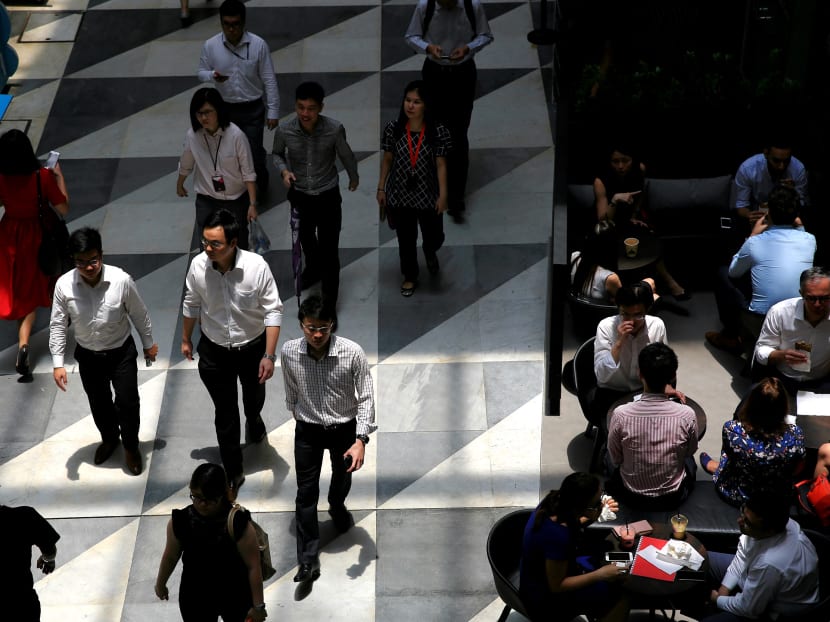‘No need for pessimism’ despite strong headwinds
SINGAPORE – A “difficult and uncertain” year for business conditions lie ahead but newly-minted Finance Minister Heng Swee Keat assured Singaporeans that there is no need to be “overly pessimistic” as there are still pockets of growth and resilience.
SINGAPORE — Business conditions are difficult and uncertain, and the year ahead will continue to bring strong headwinds.
But there is no need to be “overly pessimistic” as there are still several bright spots that will drive economic growth and hiring, Finance Minister Heng Swee Keat assured Singaporeans on Thursday (March 24).
“We must not let pessimism take hold, lest it creates self-fulfilling expectations,” he said in his Budget statement. “The Government will continue to monitor the situation, and stands ready to act if conditions warrant.”
Mr Heng acknowledged that businesses are embattled on several fronts as they confront weaker top-line growth, rising manpower costs and tightening financing. Workers are also anxious as retrenchments have increased, including among professionals.
In addition, major structural changes abroad and at home are posing intense challenges. China is rebalancing towards consumption and services-led growth and developing innovation-intensive industries, while India is building on its strength in Information and Communications Technology (ICT). “These ongoing changes are rapidly changing the patterns of trade and specialisation in Asia,” said Mr Heng.
Combined with disruptive technological changes, slowing manpower growth and an ageing population, businesses are facing the pressure of succeeding in a more competitive environment despite tighter labour constraints, making the need to restructure both “urgent and critical”.
But amid the challenges, there are pockets of growth and resilience. Even within the challenged manufacturing sector, the medical technology and chemicals sectors are growing, noted Mr Heng.
While overall growth is subdued, Singapore’s business landscape is varied, Mr Heng said. Externally-oriented sectors, by nature of their dependence on external demand, will continue to face subdued demand due to uneven global economic recovery.
Sectors that will be particularly hit include manufacturing and commodity-related activities such as marine and offshore, while weaker global demand for electronics will spill over into precision engineering, said Mr Heng.
At the same time, there are sectors benefitting from regional demand, such as tourism, financial services, ICT and consultancy. Domestic-oriented sectors such as retail, healthcare and education should also remain stable while construction will be supported by a large expansion of public infrastructure, he added.
“Within sectors, prospects vary across firms. Some are becoming more competitive and gaining market share, while others are seeking to relocate to cheaper locations,” he said.
The Ministry of Manpower’s most recent labour market report earlier this month showed that financial services was one of the worst hit by job cuts. But OCBC Bank’s head of treasury research and strategy Selena Ling said there is still overall growth in the sector, and the downsizing that is taking place is by certain foreign banks.
As for tourism, CIMB Private Banking economist Song Seng Wun said that, although the overall region is experiencing slower growth, Singapore remains a key hub and economies such as China and India are still generating outbound visitors, especially middle-class families who have the means to travel.
Prospects for the labour market are similarly mixed, with sectors such as marine and offshore retrenching, while healthcare, education and ICT are hiring.
Mr Heng pointed out that there are new and growing opportunities, with initiatives such as the ASEAN Economic Community, Trans-Pacific Partnership and China’s One Belt One Road. “We are in the centre of the Asian growth story: China, India and ASEAN are expected to grow at 6.3 per cent over the next five years, accounting for about one-third of global growth.”
With Singapore’s early restructuring efforts and Singaporeans valued for their integrity, adaptability and multicultural sensitivity, the city-state is a highly-connected and trusted node, Mr Heng said.
“We are well placed to benefit from technological changes — our investments in education, R&D (research and development) and digital infrastructure will enable us to seize new opportunities,” he said.







